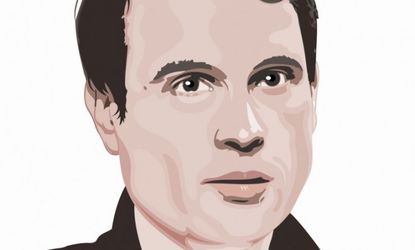Getting obesity wrong


Obesity is what sociologists might term a "wicked" problem. That is, it is a second-order scourge of the modern world, and one whose solutions are always stapled to a set of often contrasting beliefs and values that ascribe to society a certain conception of the good and just. So many of our political debates are over these issues, none of them trivial, but all of them being contested on the terrain of a society that has already figured out how to solve or mitigate the hard problems. A hard problem is a brick and mortar problem: war, clean water, life expectancy, access to justice and housing. The stakes are incredibly high. (There are, of course, gradients: access to equal housing and clean water remain problems).
What makes obesity a wicked problem is that it is not inextricably linked to the basic struggle for civilization. It exists because the civilization exists. And so, having recognized it as a thing, our politicians and experts seek out ways to frame solutions in a way that make sense to most people. In doing this they inevitably bump up against the social and class differences that define the way we look at complex problems. Citing the sociologists Horst Rittel and Melvin Webber, Michael Shellenberger and Ted Norhaus note that these problems seem irreducibly complex because one person's solution automatically becomes another person's problem, so extreme is our polarization.
An essay in their new journal, Breakthrough, by Helen Lee, takes on some of the more established beliefs of those public health activists who've made obesity their prime target. Liberal activists should read it. It's uncomfortable because it suggests that our beliefs do not comport with the science, and our preferred solutions are tied to a conception of the good life, rather than a realistic appraisal of how life is actually lived.
Subscribe to The Week
Escape your echo chamber. Get the facts behind the news, plus analysis from multiple perspectives.

Sign up for The Week's Free Newsletters
From our morning news briefing to a weekly Good News Newsletter, get the best of The Week delivered directly to your inbox.
From our morning news briefing to a weekly Good News Newsletter, get the best of The Week delivered directly to your inbox.
Why did the public health profession transform obesity from a condition resulting largely from issues at the individual level, whether ignorance or personal discipline or socioemotional factors, to an epidemic attributable to corporate malfeasance? Arguably, the half-century effort to reduce cigarette smoking played as much a role as any new medical evidence, profoundly influencing a generation of public health scholars as they turned their attention to the obesity crisis.
Experts took the wrong lessons from the smoking campaign. What worked more than pressure on the tobacco companies was the culture-wide effort to de-normalize smoking. It became unacceptable; people's interest in it waned.
Unlike smoking, which has a direct causal relationship with lung cancer, most forms of obesity do not have a similar relationship with the ailments with which they are associated. The strongest clinical evidence tying excess weight to ill health effects is driven by cases of morbid obesity. For the 4 to 6 percent of Americans who are morbidly obese, severely heavy weight creates physiological derangements of the cardiovascular system, lung functioning, liver health, and endocrine functions that directly result in higher morbidity and poor health outcomes.28
For everyone else, obesity is not a disease but rather a risk factor associated with higher incidence of illnesses such as heart disease, osteoarthritis, and diabetes. Reframing obesity from being a risk factor for other diseases to a disease unto itself, and then reframing it again as an epidemic, had significant implications for research and policy, suggesting that little could be done to improve obesity-related health outcomes without addressing what experts increasingly viewed as a major culprit for the problem: unhealthy food environments.
Sign up for Today's Best Articles in your inbox
A free daily email with the biggest news stories of the day – and the best features from TheWeek.com
Lung cancer is often a death sentence. But obesity is not. It costs a lot of money, but obese people can live long lives because doctors can treat the symptoms of the condition. Here, Lee ignores the quality of life associated with obese individuals — unhappier marriages, more broken families, much higher rates of depression — but her point is well considered.
The background for fighting obesity became dependent on victims and enemies. Innocent kids were the victims and evil food corporations were the enemies.
Many public health experts would increasingly come to see the poor in the same way — trapped in unhealthy food environments not of their own making. Researchers working for advocacy organizations produced studies demonstrating that poor communities in places like Philadelphia and Chicago were "food deserts," with little access to healthy food. Scholars called poor communities "toxic" and "obesogenic."34 Other studies suggested that the poor were more likely to be obese because healthier foods are less affordable.35
So: Poor people and kids lack the resources to be healthy. That's the narrative. Corporations, social justice groups, and health advocacy groups rapidly rallied around this explanation (really, just a framework). But the science doesn't back it up. Food deserts are not common. In fact, access to cheap, healthy food in inner-city America is plentiful. Highlight on cheap: The cheapness of it may contribute to its lack of nutritional content, but far fewer people are going hungry. (One person's problem is another person's solution). Further, outcomes for people with obesity are strongly correlated with poverty, so much so that it is impossible to isolate obesity as a causative or symptomatic.
Helen Lee suggests that instead of assuming that poor people have no agency, that they fewer access to resources, and that they cannot shape the world around them, policy-makers would be better off finding ways to reinforce healthy choices, rather than to punish unhealthy ones, or to treat a group of people as automatons who can't stop eating their Butterfingers.
Lee is not suggesting that government get out of the way, or that many of the initiatives being tested in schools and cities shouldn't be attempted. In fact, based on her logic, the easiest way to reduce obesity (and especially negative outcomes associated with it) would be reduce the number of poor people. To do that requires significant financial investment in health care, housing, jobs, parenting assistance, pre-natal care and even direct income transfers.
Similarly, increasing long-term access to high-quality health care for low-income individuals will likely improve health outcomes more than banning soda vending machines and ending agricultural subsidies. Effective therapies for heart disease, hypertension, and diabetes have already weakened the relationship between obesity and mortality for Americans who can afford them. The same Oklahoma cashier who told the Times "They say, ‘When my time is up, it’s up’" lacked health insurance, couldn’t afford regular doctor visits or medicine and eventually had to get heart surgery.
Extending better health treatments to a wider spectrum of the public would not only be a victory for public health, it would also help low-income individuals in broader ways than more-targeted investments aimed at improving food and activity environments can. Every dollar invested in improving health care access to reduce diabetes and hypertension can also help reduce other poor health outcomes that afflict low-income people with little access to health care, including many that have little to do with obesity or dietary habits.
Create an account with the same email registered to your subscription to unlock access.
Marc Ambinder is TheWeek.com's editor-at-large. He is the author, with D.B. Grady, of The Command and Deep State: Inside the Government Secrecy Industry. Marc is also a contributing editor for The Atlantic and GQ. Formerly, he served as White House correspondent for National Journal, chief political consultant for CBS News, and politics editor at The Atlantic. Marc is a 2001 graduate of Harvard. He is married to Michael Park, a corporate strategy consultant, and lives in Los Angeles.
-
 Today's political cartoons - April 21, 2024
Today's political cartoons - April 21, 2024Cartoons Sunday's cartoons - devilish decrees, biblical blunders, and more
By The Week US Published
-
 5 carefully selected cartoons about the Trump-Daniels jury selection process
5 carefully selected cartoons about the Trump-Daniels jury selection processCartoons Artists take on a stress-free life, rare peers, and more
By The Week US Published
-
 Loire Valley Lodges review: sleep, feast and revive in treetop luxury
Loire Valley Lodges review: sleep, feast and revive in treetop luxuryThe Week Recommends Forest hideaway offers chance to relax and reset in Michelin key-winning comfort
By Julia O'Driscoll, The Week UK Published